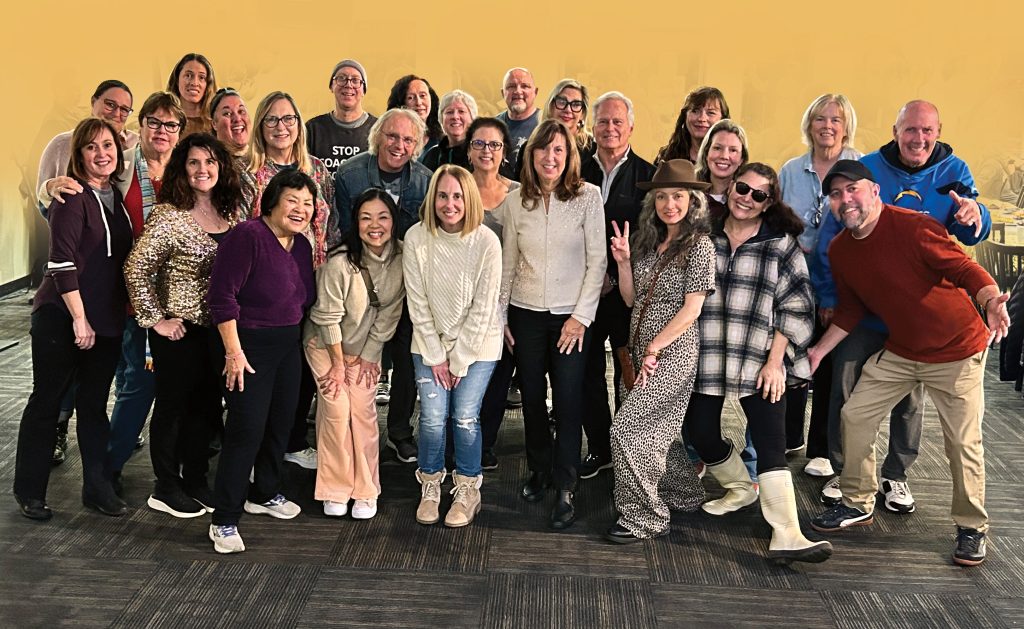One of the most unexpected gifts for parents raising children with disabilities is the opportunity to connect with the most remarkable and inspiring parents in the world.
Parenting a child with disabilities or special health needs often feels isolating, even with family and professionals by your side.
“I wish I’d understood that when your child is first diagnosed with a disability, you feel very alone, but, in truth, there are so many parents who have been on this journey,” says Temre Phipps, the mother of John, who has Kabuki Syndrome. “The best thing you can do is reach out to other special needs parents. They will be there to support you, give advice and insight, and help you find available resources.” Sometimes, it is someone who simply listens, says, “Yeah, me too,” and truly understands.
You Are Not Alone
According to the U.S. Census Bureau, over four million Californians have a disability; according to ADA Participatory Action Research, approximately 90 percent of people with disabilities in California live at home, typically cared for by a family member. You are not alone.
Caregiving demands compassion, patience, and physical and emotional energy. It’s easy to understand why caregivers feel overwhelmed. Far too often, one parent has difficulty handling the situation, which leaves the weight of responsibility on the other parent.
Why Caregivers Should Connect
When parents receive a diagnosis, they need help figuring everything out. At first it feels like there is a private door into every organization, and people can only get help if they have the key. But when you meet other moms, you realize THEY are the key. It’s important to keep adding to your “keychain” and duplicating for other parents.
The caregiver role has become more challenging. A recent survey of caregivers nationwide, conducted by The Arc and the Research and Training Center on Community Living, found that family caregivers have taken on more responsibilities. When caregivers connect, it relieves stress, giving them energy to advocate and prosper.
According to parents, here are some benefits of connecting with other families:
· Navigating the IEP process
· Support at IEP meetings
· Understanding worries with a sense of humor
· Tips on coping with everyday life
· Reviews for services from people who use them
· The inside scoop on recreation (it’s a bonus when the family also attends)
· Learning what services regional centers can fund
· Medical advice from experienced parents
· Feeling more fulfilled as a caregiver
· A huge source of love and support
· Knowing your child will be surrounded by people who understand your vision and how to make it a reality when you can no longer be a caregiver
· Creating a more inclusive society with better access to community, education and legislative power.
In addition, having a network of people that understands your struggles makes a huge difference. Diana Patoral-Carson, caregiver for her brother and disability advocate, says having a supportive community that doesn’t judge her brother as a burden is invaluable.
Where to Find Your Tribe
Phipps found her tribe by involving her child in activities he enjoyed. “The other parents quickly became my friends,” she says, “and now they are the people I turn to when I need help.”
Numerous support groups, community organizations and online forums are available.
· Rosa Padilla, a local mother and advocate, recommends attending online or in-person support groups to learn from others. Visit websites of appropriate organizations in the Resources for Specific Disabilities section of Flourishing Families.
· Check social media platforms for the specific type of groups you’re interested in. For a list of caregiver Facebook groups, visit specialneedsresourcefoundationofsandiego.com/facebook-groups-for-family-caregivers
· Involve your children in activities and sports they are interested in. Find ideas and resources in the Recreation section of Flourishing Families.
You will know when you discover your tribe because you’ll feel a sense of community and connection with people who understand your situation. Begin a text group with your tribe to regularly share about life.
An Example of Parents Providing Support to Other Parents
Autism Tree was founded in 2003 by a San Diego couple after their son was diagnosed with Autism. The organization provides over 200 community-based family events annually, each designed to build social confidence, language and communication skills from early childhood to adulthood.
Local families find tremendous help in Autism Tree’s Parent Mentor Program. The program provides face-to-face support with experienced parents, helping participants create a roadmap to navigate the very complex system of care required for children and adults with Autism. For more information, visit www.autismtreeproject.org.
Self-Care
It’s equally important for caregivers to prioritize their own physical and mental health. Caregiving can be stressful and lead to anxiety and depression. If you are a caregiver and feeling overwhelmed, don’t hesitate to seek support from a therapist or other caregiver friends. Sometimes the best medicine is sharing a cup of tea with someone who understands.
On a typical day, parenthood is a rollercoaster ride of joy, challenges and unexpected twists. When a child has a disability, the journey is even more complex. For many parents, a child’s disabilities lead them to an amazing community where they form unbreakable bonds of friendship and support.
My hope is that you’ll find people in your community to lean on who provide encouragement, belonging and love.
Linda St. Angelo Burritt is an educator, resource specialist and local mother of two kids, one of whom has multiple disabilities.

Leave a Reply